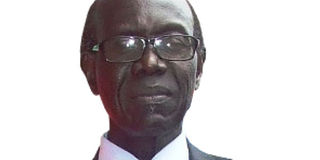East African Community @20: To celebrate or simply mark occasion?

On November 30, the heads of state of the six partner States of the East African Community (EAC) were scheduled to meet in Arusha, Tanzania, and hold the 21st ordinary session of the EAC Summit. However, the summit was postponed to a later date at the request of a member of the summit.
The occasion was to take place as the regional organisation celebrates its 20th anniversary. The theme for the occasion is, ‘EAC at 20: deepening integration and widening cooperation,’ which is pertinent and timely.
Whether one likes it or not, the survival of EAC for 20 years, despite serious challenges the community has faced and is facing today, is a significant achievement which deserves celebrating.
The original EAC which consisted of Kenya, Tanzania and Uganda, lasted barely 10 years from 1967-1977. It collapsed amid acrimony among the leaders; fundamental and irreconcilable differences between Gen Idi Amin of Uganda and Mwalimu Julius Nyerere of Tanzania, and ideological differences between Mzee Jomo Kenyatta of Kenya and Nyerere of Tanzania.
Twenty years ago, an inter-ministerial meeting was held in Kampala, in July or August 1999, to take stock of negotiations which had been going on for several months in Arusha between Uganda, Kenya and Tanzania on the desire to transform East African cooperation into EAC. My colleague and friend, Ambassador James Baba, was head of the Uganda delegation to those negotiations and chairperson of the negotiations at the level of senior officials and technical personnel. Mr Baba deserves hearty congratulations for a job well done.
As team leader of senior officials from Ministry of Foreign Affairs at the inter-ministerial meeting, it fell upon me to announce then “breaking news” to the effect that agreement had finally been reached to revive the East African Community, with effect from November 30, 1999. There was spontaneous jubilation and celebration at the conference hall after my statement.
The joy, hopes and great expectations wananchi of East Africa had in regional integration appear to be reaching a dead end and things could easily fall apart. A heated debate in Parliament 10 days ago is symptomatic of the unfriendly, if not hostile, relations existing among some partner states of EAC, notably between Rwanda and Uganda on the one hand and Rwanda and Burundi on the other. Such unfriendly relations threaten bilateral relations and regional integration.
The forthcoming summit provides an opportunity to address ongoing problems which threaten the future of EAC, inject necessary political will to settle disputes peacefully among partner states and chart a way forward for the community. The interest which DR Congo, under president Felix Tshisekedi, has shown in joining EAC is a positive development which I hope the summit will welcome and endorse.
According to a story published in Daily Monitor of November 15 titled, ‘MPs reject call to celebrate EAC day over border wrangle,’ Ugandan MPs rejected a proposal by EAC minister of State Wandera Maganda urging members to mobilise Ugandans to celebrate the 20th anniversary of our regional organisation.
On a personal note, three days before EAC day, I plan to celebrate on November 27, without any acrimony and contention, my 72nd birthday. I thank God for abundant blessings generously showered upon me by the good Lord for over seven decades.
Way forward for EAC
One of the lessons learnt from the collapse, in 1977, of the original EAC was that it was top-down and depended for survival on political goodwill of the leaders and when two presidents were at loggerheads, the centre could not hold and EAC fell apart.
Unlike the EAC of the 1960s and 1970s, the current EAC was designed and intended to be “people-centred” in order to avoid history repeating itself. Well, looks like our leaders have not learnt the lessons of history and we are, therefore, condemned to suffer the dire consequences of the folly of leaders who are waging personal battles and vendettas at the expense of the people. It is despicable, irresponsible and unacceptable, to put it mildly.
EAC belongs to the people of East Africa, not to a handful of arrogant, callous and self-seeking leaders. The people of East Africa deserve better and must not, once again, be passive and helpless spectators as a few greedy men tear EAC apart. I appeal to the wananchi, especially the gallant youth of East Africa, to take appropriate, peaceful and political action to save EAC from imminent collapse. Aluta continua!
Mr Acemah is a political scientist and retired career diplomat.
[email protected]




